The Stunning Temples of Angkor Wat and Thom
|
|
Located in a part of Cambodia that
was once the seat of the famous Khmer Empire, Angkor (meaning 'capital
city' in Khmer) was the heart of this civilization that thrived from the
9th to 15th centuries CE. There are over one thousand different temples
in Angkor of different sizes and scales, all of which have been
restored as a landmark of historic Khmer architecture. The entire site
is preserved as a UNESCO World Heritage Site, but even if you can't make the journey to Cambodia, here is a tour of Angkor's highlights.
|
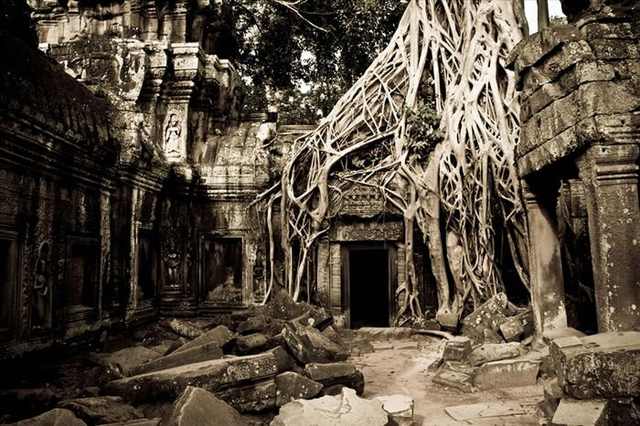 |
| In 2007, a group of researchers concluded the Angkor had been the largest preindustrial city in the world, with an elaborate infrastructure system that connected at least 1,000 square kilometers (390 square miles) to the temples at its center. It is estimated that the Angkor area may have supported up to one million people. |
|
|
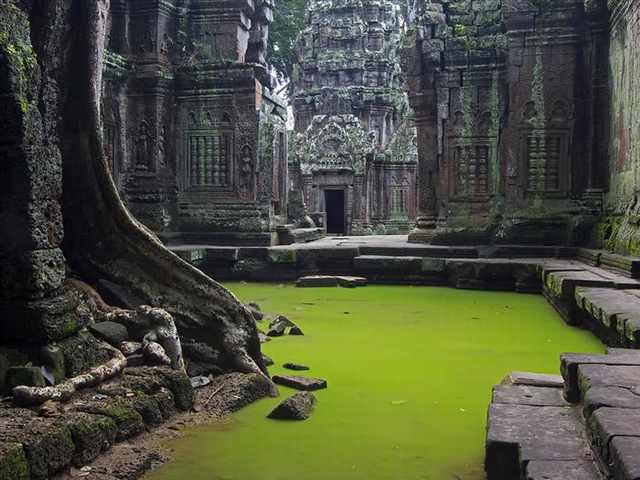 |
|
|
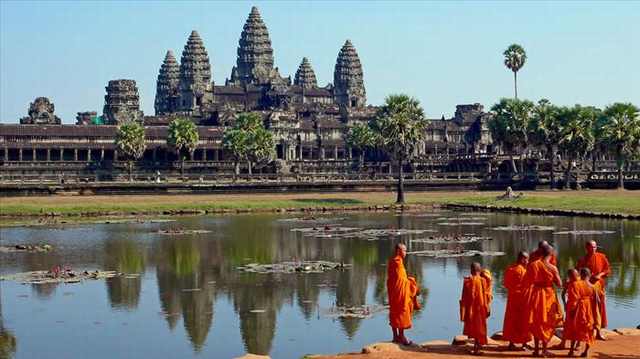 |
|
Buddhist
monks in front of the reflection pool at Angkor Wat, the site's
best-known structure. Angkor Wat was built to represent the Hindu
'Mountain of the Gods' and served as a funerary temple. It was built
between 1113 and 1150 by King Suryavarman II. |
|
|
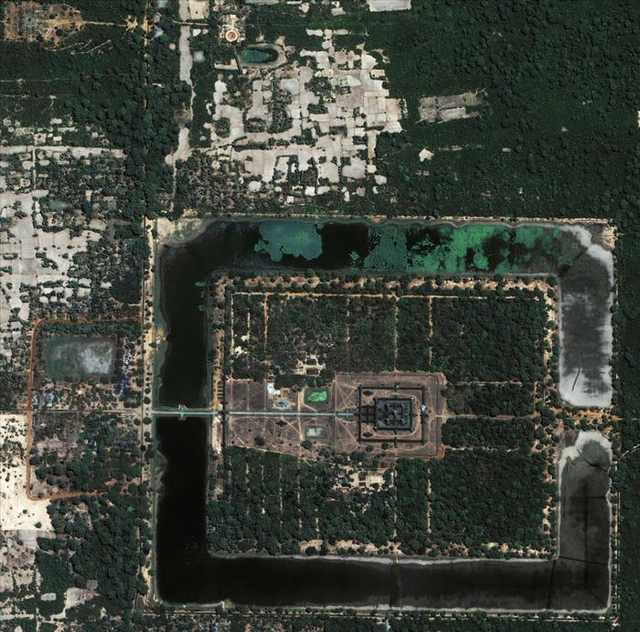 |
| An aerial view of Angkor Wat, the temple dedicated to the Hindu god Vishnu and built as a representation of Mount Meru, the home of the gods and the center of the Hindu universe. Donned with pyramid architecture, the temple is also covered with intricate reliefs of Hindu gods and epics. |
|
|
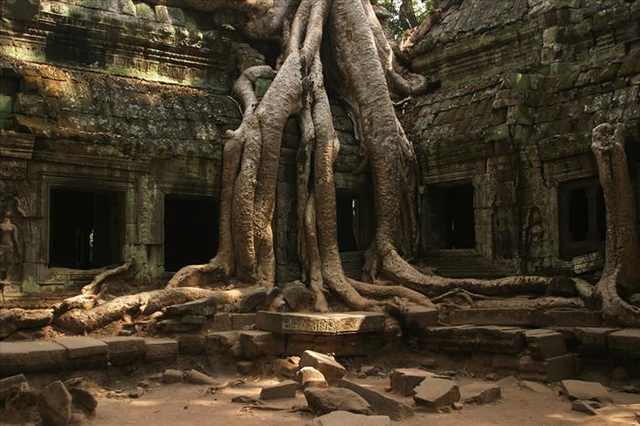 |
|
The
iconic tree at Ta Prohm. This temple was built during the time of
Jayavarman VII and is best known as the temple where trees have become
intertwined and interwoven into the stone. |
|
|
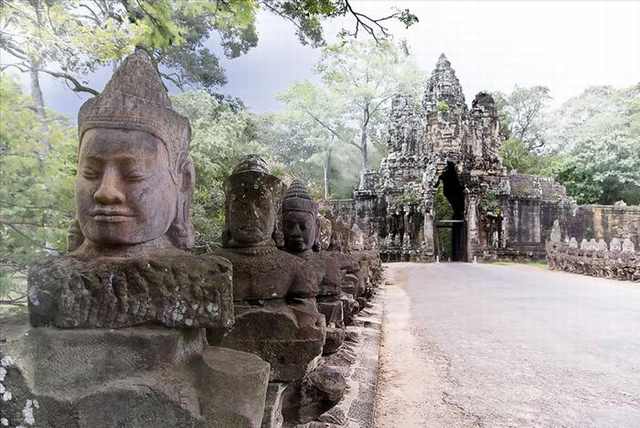 |
|
Statues
at the gateway to Angkor Thom, or 'The Great City'. These images
represent the Hindu myth of creation, called the Churning of the Sea of
Milk. On one side of the path, there are 54 guardian gods called devas
and on the other side there are 54 images of demon gods called asuras. |
|
|
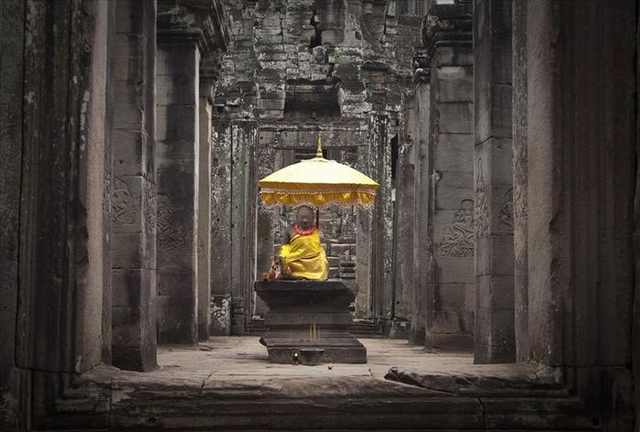 |
|
A statue of a Buddhist monk. |
|
|
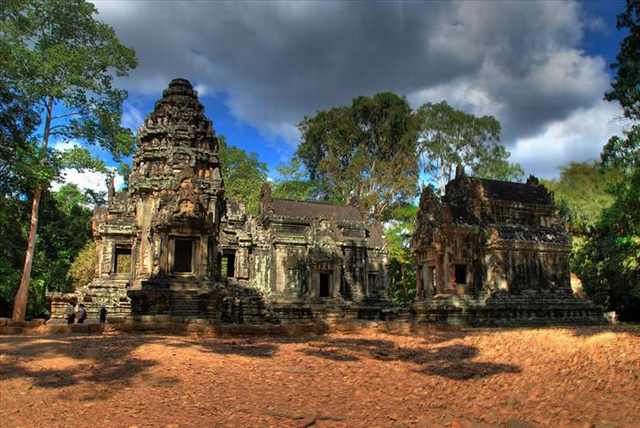 |
|
Chau
Say Tevoda, another temple, built in the style of Angkor Wat in the 12
century before the construction of Angkor Thom and the Victory Way. |
|
|
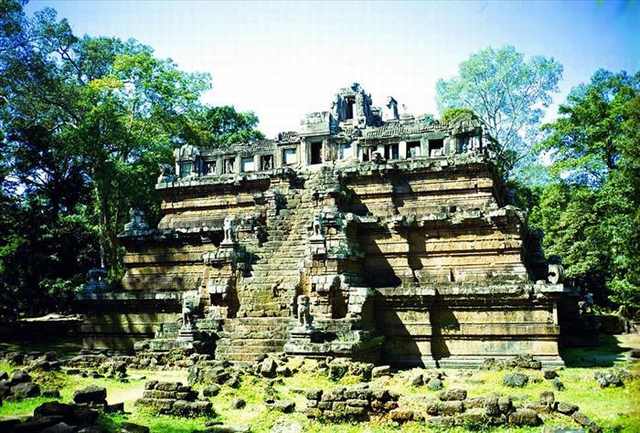 |
| Phimeanakas was built towards the end of the 10th century during the reign of Rajendravarman and later rebuilt by Suryavarman II in the shape of a three-tiered pyramid. According to legend, there was once a tower at the top of the temple. |
|
|
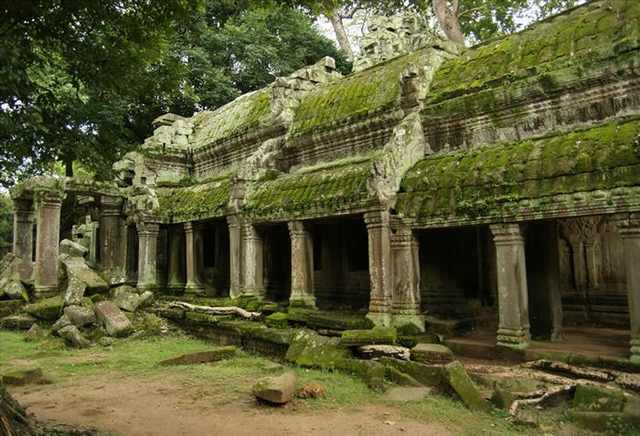 |
|
Fine
carving at the ruins of the Buddhist temple of Angkor Ta Prohm. The
temple dates back to the 12-13th century and was built by the famous
Jayavarman VII. |
|
|
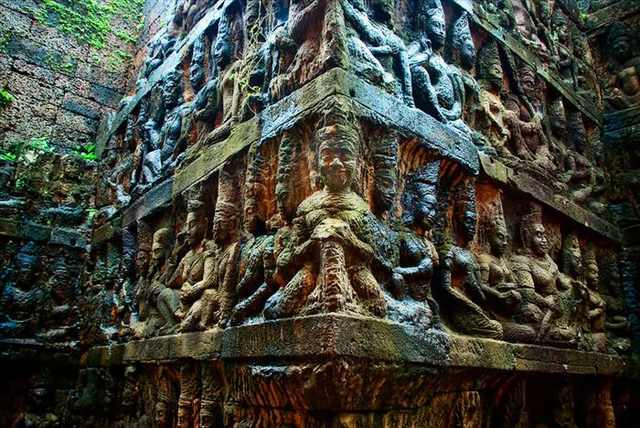 |
|
Detailed reliefs of the underworld, part of the Royal Square between the temples. |
|
|
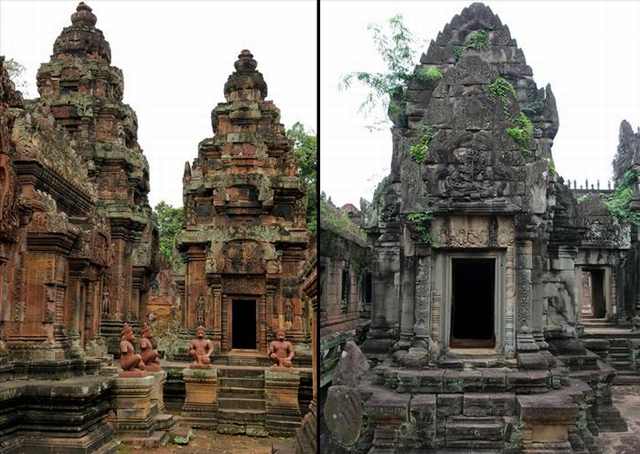 |
|
Banteay
Srei was a temple built in the 10th century that was dedicated to the
Hindu god Shiva. It is the only major temple built at Angkor that was
not built by a monarch, but rather a courtier is accredited with the
construction. |
|
|
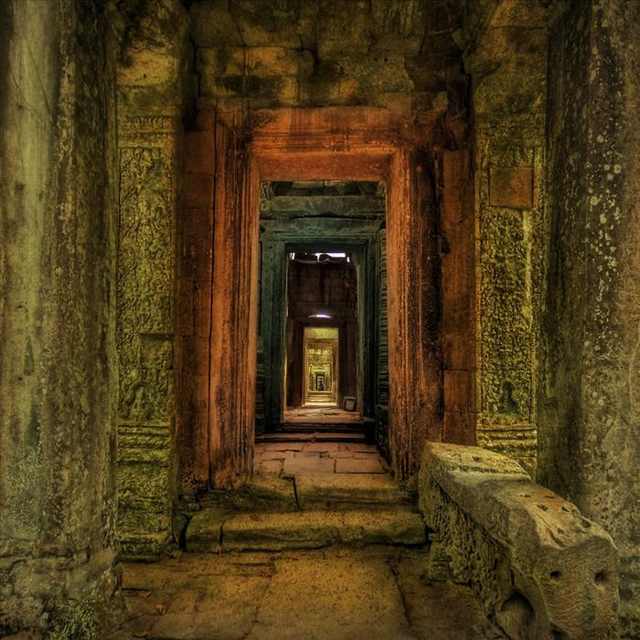 |
|
A secret passageway in one of the side temples. |
|
|
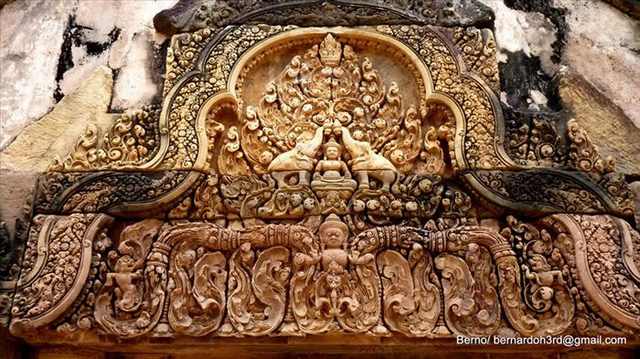 |
|
The
Banteay Srey temple dedicated to Shiva is so popular with tourists
because it has been called 'the jewel of Khmer art', due to the
untypically small size of the buildings. |
|
|
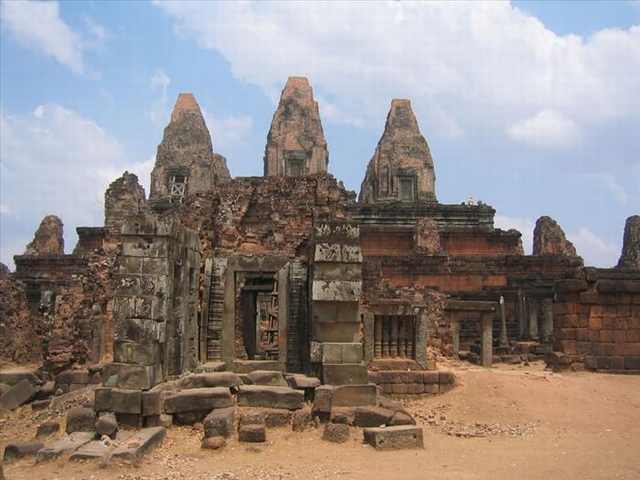 |
|
Pre
Rup was originally built as the state temple of Khmer king
Rajendravarman. It was dedicated in 961 or 962 and was built entirely of
brick, laterite and sandstone. |
|
|
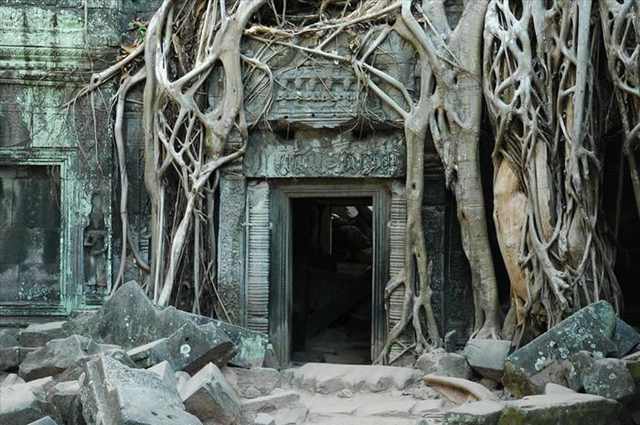 |
|
The famous empty doorway of Ta Prohm. |
|
|
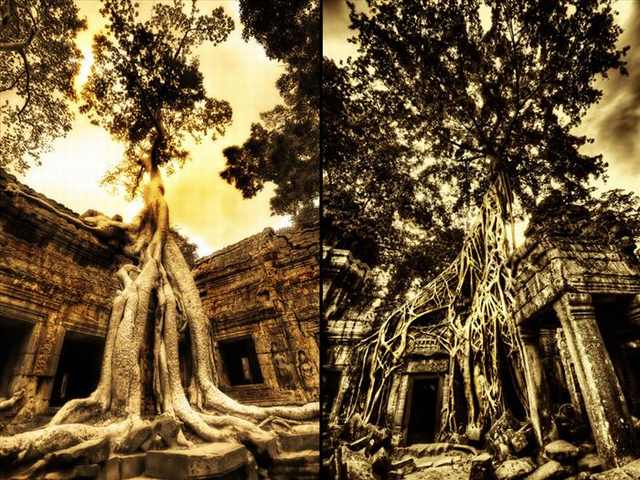 |
|
|
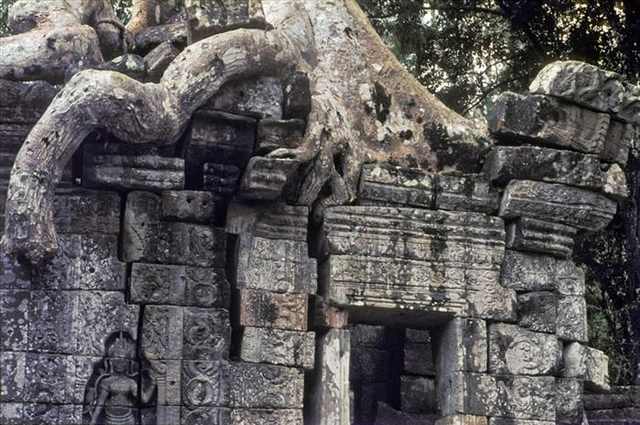 |
|
A photo of Angkor Wat taken in 1965 whence time was already taking its toll. |
|
|
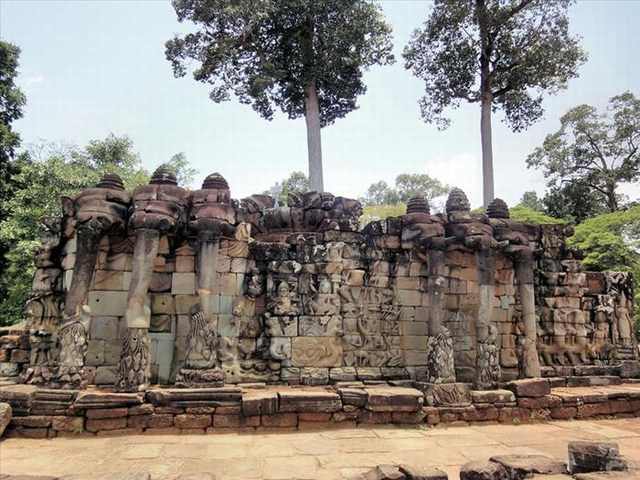 |
|
The Angkor Thom terrace of the Elephants named for the 350 meter long (1,148 ft) carvings of elephants on its face. |
|
|
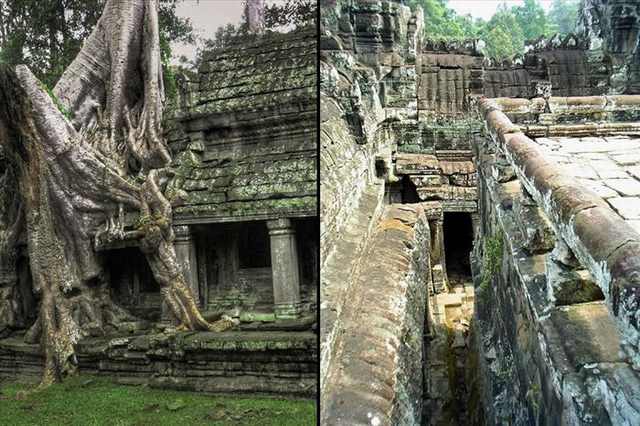 |
|
|
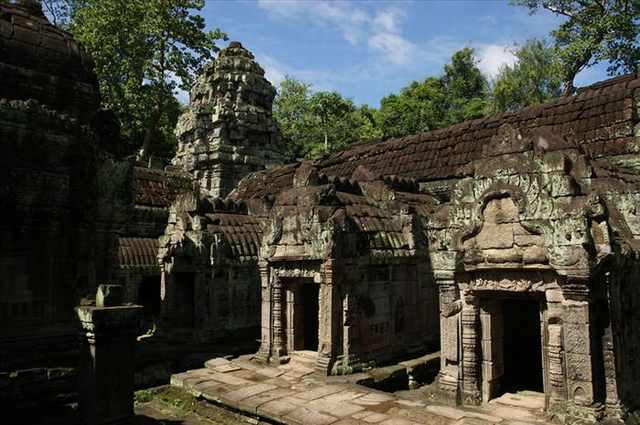 |
|
Preah
Kham temple ruins, built by king Jayavarman in VII in the late 12th
century and dedicated to his father Dharanindravarman II. |
|
|
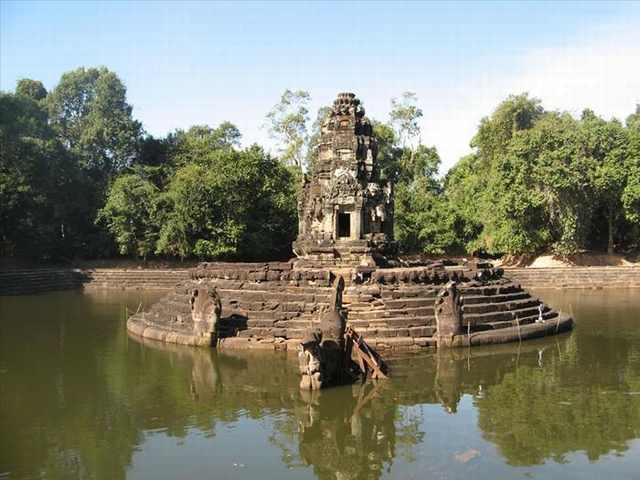 |
|
Neak
Pean Temple is an artificial island with a Buddhist temple at its
center. There are snakes or Naga that cover the bottom of the temple
structure. |
|
|
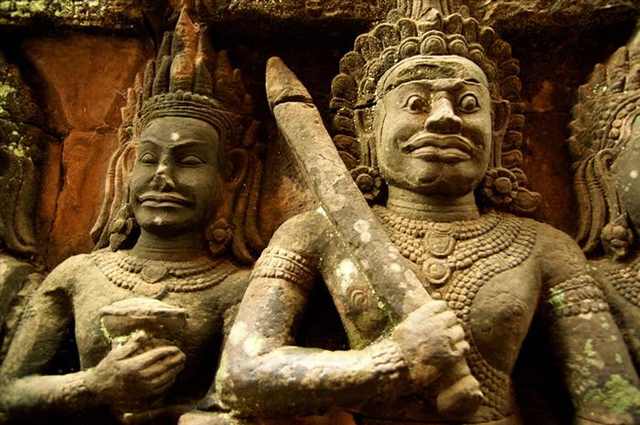 |
|
Terrace view of the Leper King in Angkor Thom. |
|
|
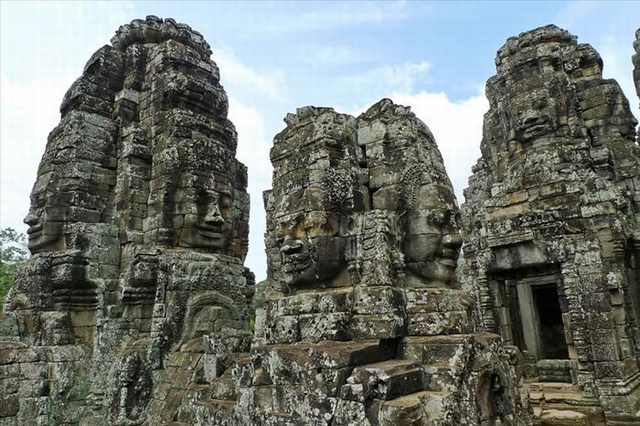 |
|
The stone faces of Bayonne. |
|
|
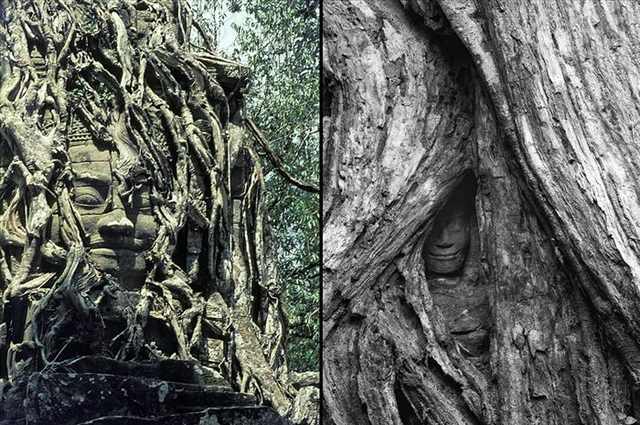 |
|
Buddha covered and embraced by the roots of nature. |
|
|
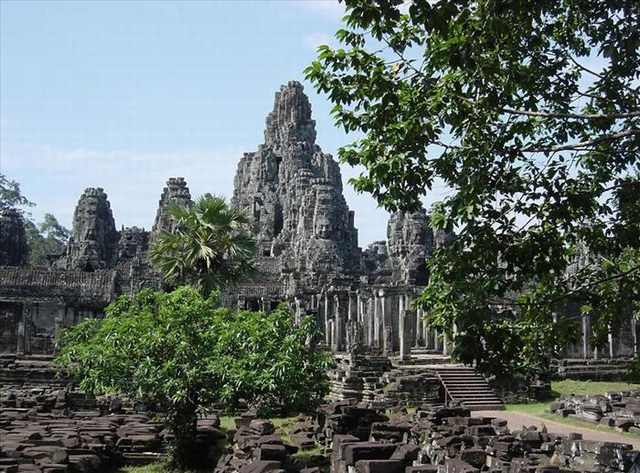 |
| Bayon Khmer Buddhist temple of the 13th century. |
|
|
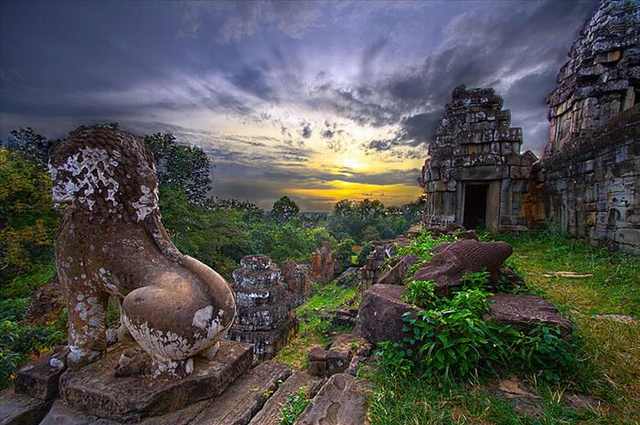 |
| Phnom Bakheng. |
|
|
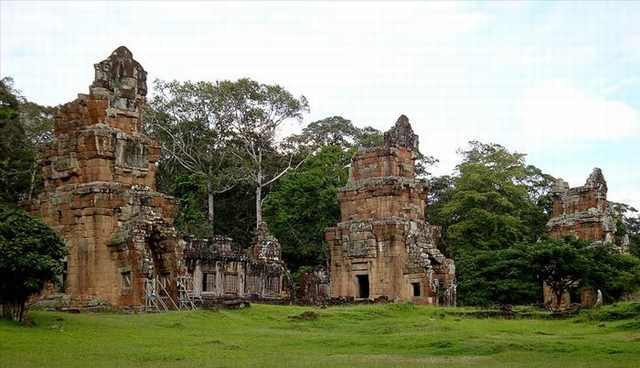 |
|
Prasat Suor Prat is a series of 12 towers at Angkor Thom. |
|
|
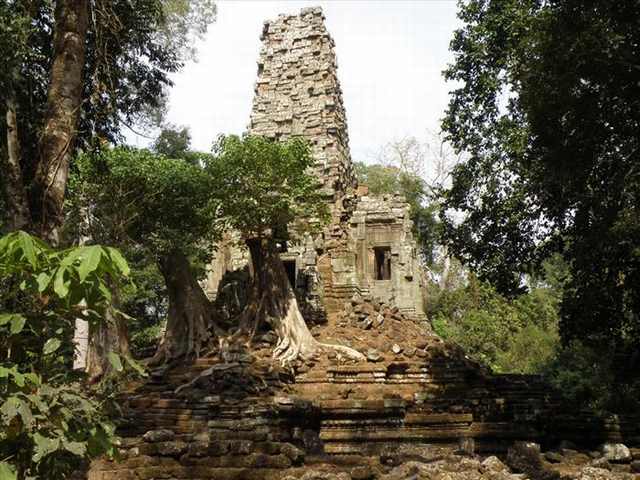 |
|
Prasat
Preah Palilay. New research suggests that this entrance to a grid of
canals was built as a shortcut for the ancient construction workers when
building the Angkor Wat temple. This possibly explains how the temple
was built in a mere 20 years. |
|
|
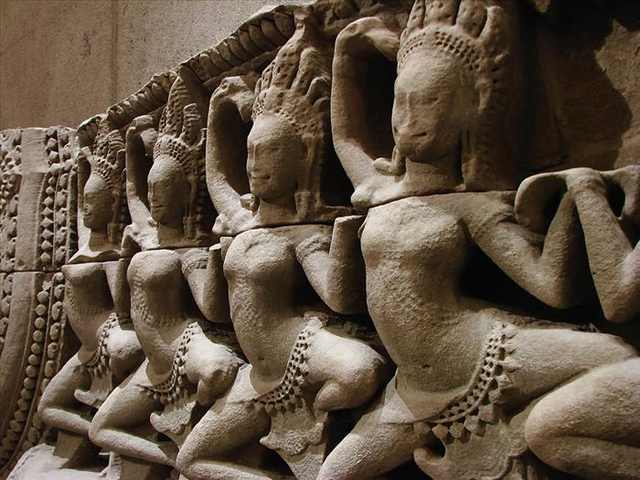 |
|
Apsaras from 12th-13th century sandstone. |
|
|
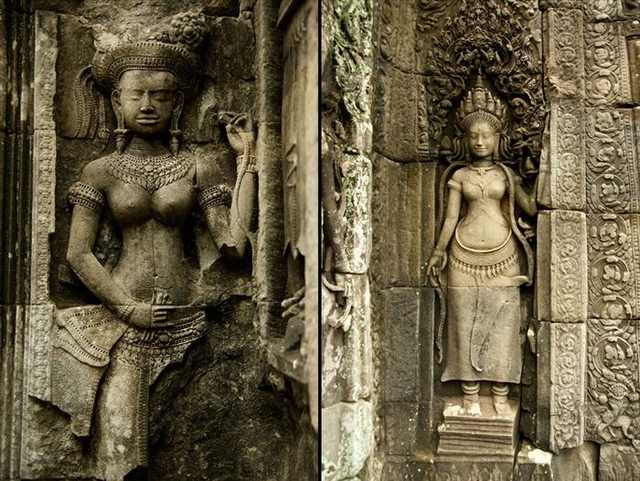 |
| Statues at the Bayon temple. |
|
|
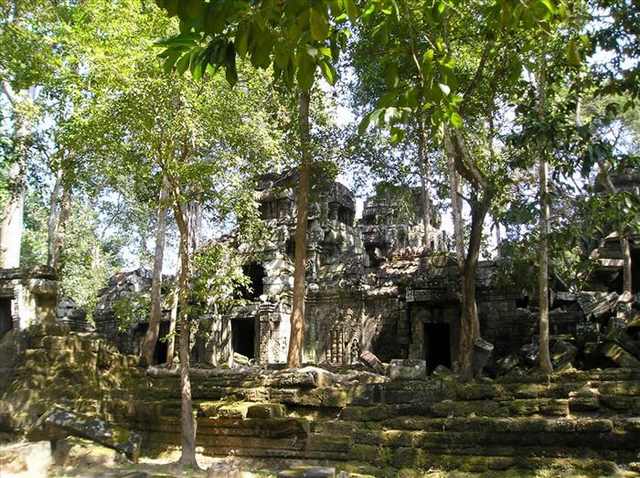 |
|
|
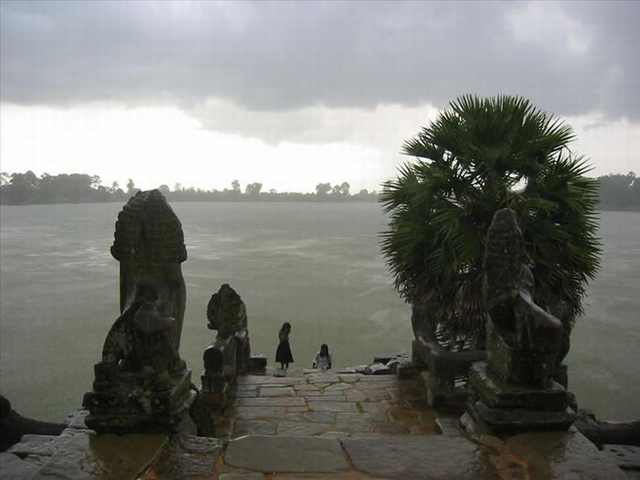 |
|
Srah
Srang reservoir that was built during the mid-10th century. There are
steps that lead down to the water guarded by two lions. |
|
|
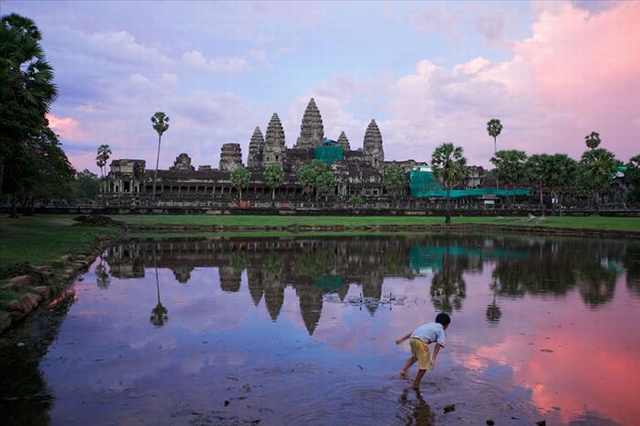 |
|
|
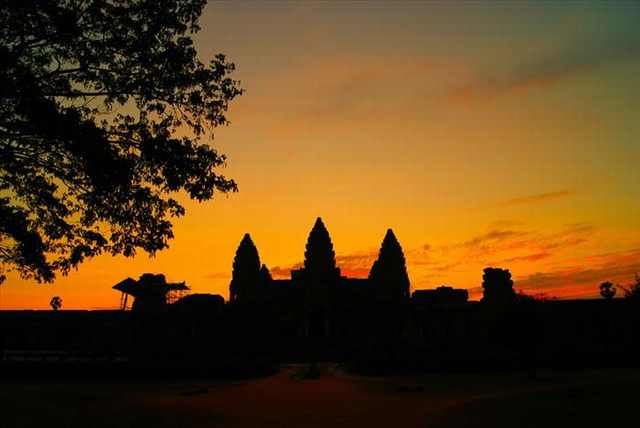 |
|
Sunset at Angkor Wat. |
|
|
vendredi 22 août 2014
The Stunning Temples of Angkor Wat and Thom
Inscription à :
Publier les commentaires (Atom)
Aucun commentaire:
Enregistrer un commentaire